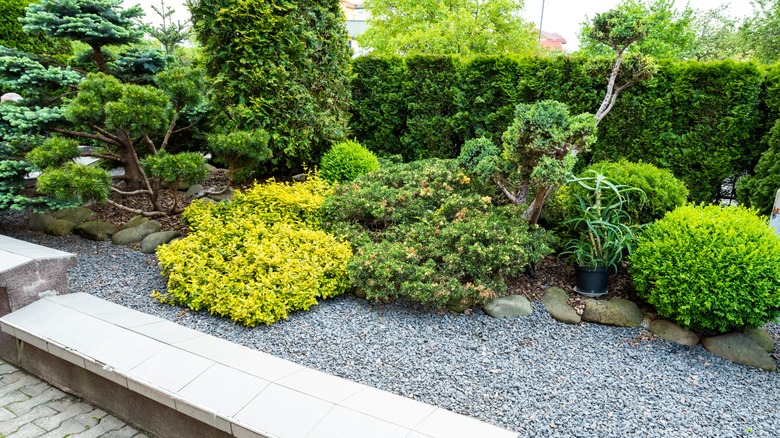If you live in Nashville or nearby, you know the weather changes a lot. Some days are hot. Some days are cold. That’s why you need to pick trees and shrubs that grow well here. The right plants can make your yard look good all year.
You also need to know when to plant. Some seasons are better than others. If you’re not sure what to plant, you can get help from Opportunity Landscapes and Nursery. They know which trees and shrubs are best for Landscaping in Nashville.
Let’s talk about which plants are good for your yard and when to plant them.
Use Native Plants for Tennessee
Native plants are plants that grow naturally in Tennessee. They are strong and don’t need a lot of care. They can handle local weather, bugs, and soil. You won’t have to water them too much.
Here are some good native plants:
Black-eyed Susan – yellow flowers, easy to grow
Coneflower – purple flowers, needs little water
Butterfly weed – orange flowers, brings butterflies
Wild columbine – red and yellow flowers, grows in shade
These plants look nice and don’t need a lot of work.
Trees That Grow Well in Nashville
Some trees grow better in Tennessee than others. These trees are strong and grow well in our weather.
Here are some good trees for Nashville:
Red maple – grows fast, has red leaves in fall
Dogwood – pretty flowers in spring
Tulip poplar – tall tree with yellow flowers
Eastern redbud – pink flowers in early spring
These trees are good for shade and beauty.
Easy Shrubs for Your Yard
Shrubs are small bushy plants. They are great for filling empty spaces and making your yard look full. Some shrubs are very easy to grow.
Here are some low-maintenance shrubs for yards:
Boxwood – stays green all year, easy to trim
Spirea – small flowers, grows fast
Juniper – grows in dry soil
Dwarf yaupon holly – slow-growing, needs little care
These shrubs are good if you don’t want to spend a lot of time working in your yard.
Best Time to Plant Trees in Tennessee
In Tennessee, fall or early spring are the ideal seasons for tree planting.
Seasonal Landscaping Tips
Each season needs different work in the yard. Here are some simple tips for each season:
Spring:
Plant new trees and shrubs
Add mulch to hold in water
Trim dead branches
Summer:
Water early in the morning or evening
Watch for bugs
Cut back plants if needed
Fall:
Great time to plant trees
Rake leaves
Prepare plants for cold weather
Winter:
Cover small plants if it gets very cold
Clean up old leaves and sticks
Plan for next year
Plants That Can Handle Dry Weather
Tennessee can get hot in summer. Select drought-tolerant plants if you want low-water-requirement plants. Even if it doesn’t rain for a while, these plants still look good.
Good drought-tolerant plants for Nashville:
Coneflower – pretty and strong
Daylily – colorful and needs little water
Sedum – thick leaves hold water
These plants are great for saving water and still having color in your yard.
Evergreen Shrubs for All Seasons
Evergreen shrubs stay green in every season. They don’t lose their leaves in winter. They keep your yard looking nice all year.
Good evergreen shrubs for Middle Tennessee:
Boxwood – small and round
Arborvitae – tall and good for privacy
Inkberry – dark green leaves, grows in wet areas
Holly – some types have red berries in winter
Plant these near your house or around your yard to keep it green.
Flowering Trees for Tennessee Yards
If you want more color in your yard, plant flowering trees. These trees bloom in spring and make your yard look bright.
Best flowering trees for Tennessee:
Dogwood – white or pink flowers
Redbud – covered in purple-pink flowers
Magnolia – big white or pink flowers
Serviceberry – small white flowers and berries
These trees make your yard look pretty without much work.
Choose trees and shrubs that can live well in Nashville. Good ones are red maple, dogwood, and boxwood.
Water your plants often. Put dry leaves or wood chips around them. This helps them grow strong and stay healthy.
FAQs
1. What are the best flowers and vegetables to plant in each season?
Different plants thrive in different weather. Spring is great for tomatoes, lettuce, and tulips. Summer suits peppers and sunflowers. Fall is ideal for spinach, kale, and mums. Winter planting depends on your zone—some root veggies and hardy flowers like pansies still do well.
2. How can I prepare my soil for each planting season?
Before each season, clear out old plants, add compost, and test your soil. In spring, loosen the soil and remove weeds. For fall, mix in organic matter and mulch to protect it for winter. Seasonal prep helps improve growth and prevents pests.
3. When is the right time to start planting for each season in my area?
Planting times vary by climate zone. Use a local planting calendar or talk to nearby landscapers. In general, early spring and early fall are the key times to start, but exact timing depends on frost dates and soil temperature.
.



